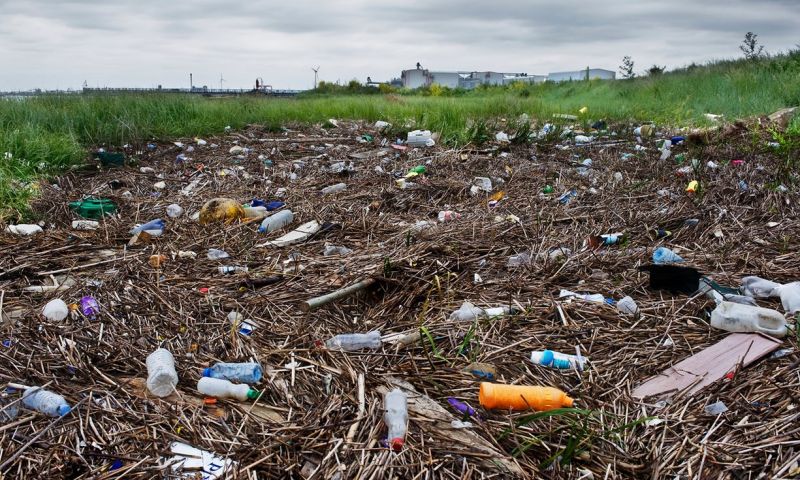London's Plastic Water Bottle Waste is Out of Control
Published on by Water Network Research, Official research team of The Water Network in Academic
The amount of waste from single-use plastic bottles in London has risen out of control, according to a report from the London assembly environment committee.

Plastic bottles washed up on the foreshore of the Thames at Rainham on the outskirts of east London.
Photograph: Gordon Scammell/Loop/Getty
It calls on the mayor to consider introducing a deposit-return scheme and to provide free tap water as an alternative.
The report finds that the London population consumes more plastic bottled water than anywhere else in England – 7.7bn a year – yet has the worst recycling rate in the UK – 32%, compared with a national average of 43%.
Plastic bottles make up 10% of all litter found in the Thames, the Thames21 waterways group revealed recently. A separate study found three-quarters of the flounder swimming in the river had ingested plastic. Plastic bottles take 450 years to break down.
The report urges the mayor of London, Sadiq Khan, to address the specific issue of plastic water bottle waste in his upcoming environment strategy. It recommends that he examines the feasibility and practicalities of a bottle deposit return scheme, which the government could later roll out nationwide. Such a scheme would offer an incentive to return plastic bottles by adding a reclaimable amount to the price of bottled drinks.
To reduce Londoners’ thirst for bottled water, tap water should be more readily available from community refill facilities and at mainline rail and underground stations as well as bus stops, the report says.
HydraChill water refilling stations have been trialled at Hammersmith bus station in west London and a number of piers along the Thames, which have proven popular with both commuters and staff. Apps could also be promoted to help consumers locate businesses willing to provide free water refills, the report suggests.
Plastic waste is out of control in London,” said Leonie Cooper, who chairs the environment committee. “It litters our parks, pollutes the Thames, harms marine life and adds waste to London’s landfill sites, which may be full by 2025. We have to turn the situation around. Firstly, Londoners need an alternative to buying bottles of water – this is a crucial part of the solution.
Tap water needs to be more readily available. Secondly, we need to improve our recycling of plastic bottles. Currently, far too many end up in landfill or in the natural environment.”
Cooper said voters had heard Khan’s pledge to be “the greenest mayor London has ever had”. “Now it’s time for him to fulfil that promise by addressing our thirst for plastic bottled water,” she said.
Read more: The Guardian
Media
Taxonomy
- Integrated Urban Water Management
- Ecosystem Management
- Pollution
- Plastic Parts
- Waste Disposal
- Impact
- Bottled Water
- Pollution